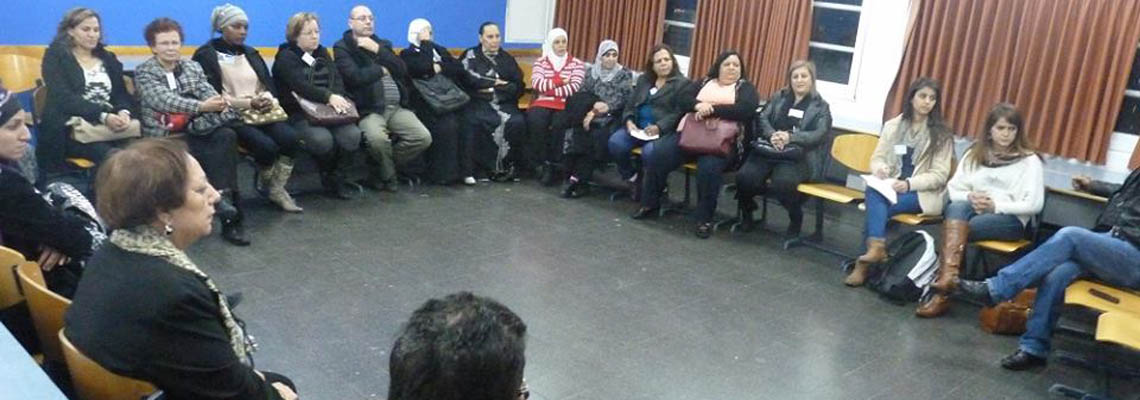 Haifa University and Leo Baeck have created an innovative partnership to strengthen community-based activities in Haifa’s disadvantaged western neighborhoods as well as a model program for multicultural societies in conflict. This joint initiative focuses on encouraging inclusion of vulnerable groups that have been excluded from mainstream Israeli society, such as Arabs, new and veteran immigrants, women, and individuals with special needs. It leverages academic and hands-on knowledge to improve access to local resources and has developed a grass roots approach for encouraging the inclusion of community members in community action initiatives.
Haifa University and Leo Baeck have created an innovative partnership to strengthen community-based activities in Haifa’s disadvantaged western neighborhoods as well as a model program for multicultural societies in conflict. This joint initiative focuses on encouraging inclusion of vulnerable groups that have been excluded from mainstream Israeli society, such as Arabs, new and veteran immigrants, women, and individuals with special needs. It leverages academic and hands-on knowledge to improve access to local resources and has developed a grass roots approach for encouraging the inclusion of community members in community action initiatives.
Now in its fourth year, the Flagship Program has continually expanded its scope and impact; it was designed to nurture social inclusion in Haifa’s multicultural communities and currently serves as a model in Israel and for partnerships between academia and local lay leadership.
The Flagship Program for Combating Exclusion and Promoting Social Solidarity focuses on three key areas of activity:
Academy in the Community – Academic-level leadership and empowerment courses are taught by University faculty in community centers in disadvantaged areas. These onsite courses (with a total enrollment of approximately 400 students) are designed specifically to address challenges identified by local community leaders and professionals; they combine theory and practice to empower individuals and groups to lead change processes. They are led by socially-engaged leading faculty members and give residents a chance to take part in the university experience as both students and leaders in their own communities. Recently offered courses include Social Policy for Community Leaders, At-Risk Youth in Multi-cultural Societies, and Challenges in Adolescent education for families and communities.
Action-Oriented Courses – This program also offers academic experiences that integrate classwork with hands-on, field-based assignments in the community. Each year, more than 150 students take part in social-academic courses and seminars that include a community service component.
Empowering Local Communities through projects and activities – In cooperation with the local municipality and various NGOs in Haifa’s western neighborhoods, three community programs for combating social exclusion and promoting shared existence are being offered to residents, including:
- The Ein Hayam Trail (“Sovev Ein Hayam”), an award-winning community-based economic initiative to develop a sustainable tourism business model in the Ein Hayam neighborhood.
- Playing Cultures (“Noar Mengaen Tarbuyot”), a Jewish-Arab Music Troupe that inspires shared existence through the language of music.
- Honoring Ethiopian Heritage, a University Leadership Training Program project developed in cooperation with the Israel Folktale Archives, aims at promoting the inclusion of the Ethiopian community by giving Ethiopian folktales and heritage a place in the Israeli narrative. By teaching young students of Ethiopian descent to document and record family folktales and stories, the project is instilling a sense of community pride in their cultural heritage and making these inspiring stories accessible to the public in Israel and abroad.
The issue of social exclusion is rising to the forefront of social and political discourse in Israel and around the world. With the adoption of the 2010 United Nations Millennium Development Goals, many countries around the globe are now tackling the devastating effects of social exclusion. While the causes of social exclusion vary from country to country, the issue is universally tied to ensuring systematic access to opportunities and resources that are available to all members of multicultural societies.
The Flagship Program for Combating Exclusion and Promoting Social Solidarity in Multicultural Societies in Conflict offers an opportunity to affect social change through partnerships between academia and the community and to become a model for combating social exclusion here in Israel and in nations facing similar challenges.



